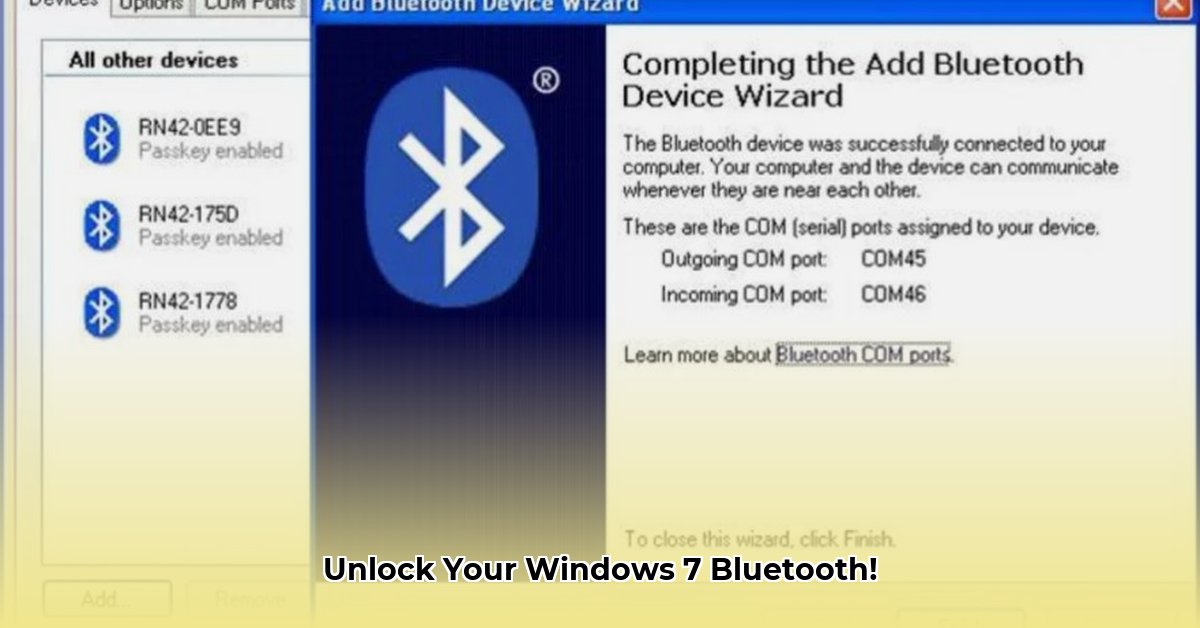
Understanding Intel's Bluetooth Manager License Agreement for Windows 7
Need Bluetooth on your aging Windows 7 PC? Before downloading Intel's Bluetooth Manager, understanding its license agreement is crucial. This guide simplifies the legal complexities, outlining the risks and providing actionable steps to ensure safe and compliant usage. We'll cover installation, alternative solutions, troubleshooting, and the legal implications. Getting Bluetooth working shouldn't mean compromising your security.
Unpacking the Intel License Agreement: Key Points for Users
Intel's license agreement, while lengthy, boils down to a few key points impacting your usage. It grants a limited license, not ownership, of the software. This means restrictions apply on modification, reverse-engineering, and redistribution. Why these limitations? Intel protects their intellectual property and limits their liability in case of software malfunctions.
- Limited License: You are granted permission to use the software, but not to modify, redistribute, or reverse-engineer it. Violation could lead to legal action.
- Limited Liability: The agreement likely includes clauses limiting Intel's financial responsibility for software issues. This is standard practice in software licensing.
- Data Collection: Intel probably collects data on software usage for improvement purposes. While beneficial for future software development, this raises privacy concerns. However, many companies use this data anonymously.
Have you ever wondered how much data is actually being collected by software license agreements? Many agreements lack the transparency needed to fully understand the extent of data collection.
The agreement likely details the specific data collected, its usage, and storage duration. However, if this information isn't clear, it warrants careful consideration. Intel, as with most software companies, likely collects anonymized usage data to improve its products. However, the lack of clear explanations raises valid concerns.
Your Data and Privacy: Understanding Intel's Data Collection Practices
The license agreement likely addresses data collection practices. While often designed to improve future versions, the lack of granular detail about collected data, its usage, and long-term storage raises privacy concerns. This isn't inherently malicious but highlights the need for transparency.
Many companies collect usage data to improve their software, often anonymized, meaning it doesn't directly identify you. However, the specifics are often obscured in legal jargon. The key takeaway is: If you're uncomfortable with the lack of clear information on data collection, you should carefully weigh the risks.
Smart Steps Before Downloading: A Practical Checklist
Before you download Intel's Bluetooth Manager for Windows 7, follow these steps:
- Read the Entire Agreement: Don't skim! Read the entire license agreement. Understanding the terms protects you legally. This takes time, but it's a crucial step.
- Understand the Limitations: Pay attention to warranties and liability limitations. This is crucial for both casual users and developers.
- Scrutinize Data Collection: Examine the clauses about data collection. Are the practices clearly described and comfortable for you?
- Seek Expert Advice (If Needed): Are you uncertain about any aspect of the agreement? Consulting a lawyer can clarify legal jargon and assess associated risks.
Weighing the Risks and Mitigating Potential Issues
Let’s summarize the potential risks and mitigation strategies:
| Risk Category | Likelihood | Impact | Mitigation |
|---|---|---|---|
| Intellectual Property Issues | Moderate | High | Adhere strictly to the license terms. Avoid unauthorized modification or distribution. |
| Privacy Concerns | Moderate | High | Carefully review the data collection section. Consider the implications before use. |
| Software Malfunctions | Low | Moderate | Look for updates. Explore alternative Bluetooth solutions if concerned. |
| License Non-Compliance | Moderate | High | Ensure complete understanding and compliance with all license terms. |
The decision to download and use Intel's Bluetooth Manager remains yours. By understanding the license agreement, you can make an informed choice. Knowledge is key when navigating complex software licenses.
Navigating Intel Bluetooth Software License Restrictions for Developers (Advanced)
For developers, understanding the Intel Bluetooth Limited Distribution License Agreement (LDLA) is paramount. This agreement governs permitted uses, imposing restrictions on distribution, modification, and reverse engineering. Compliance is crucial; non-compliance can have serious legal repercussions.
The core restrictions remain consistent across Windows versions, although subtle differences might exist in driver versions and open-source components. Thorough investigation is key to ensure full compliance, particularly regarding the open-source elements. The agreement strongly emphasizes confidentiality, often requiring a Corporate Non-Disclosure Agreement (CNDA) for commercial applications.
Key Risks and Mitigation Strategies for Developers
| Risk Category | Risk Level | Mitigation Strategy |
|---|---|---|
| LDLA Compliance | High | Conduct a thorough legal review of the LDLA before integrating. |
| Subcontractor Liability | Medium | Carefully vet contracts with subcontractors ensuring LDLA compliance. |
| Open Source Compatibility | Medium | Scrutinize the driver package for open-source components and ensure license compliance. |
| Intellectual Property Infringement | High | Strictly adhere to all aspects of the LDLA regarding software usage and modification. |
Practical Steps for Developers: A Step-by-Step Guide
- Download and Review: Download the driver and thoroughly read the LDLA.
- Legal Counsel: Consult legal counsel specializing in software licensing and intellectual property.
- Compliance Plan: Develop an internal compliance plan to ensure ongoing adherence.
- Subcontractor Management: If using subcontractors, clearly define their LDLA compliance obligations.
- Open Source Due Diligence: Identify and assess any open-source components included within the driver package and verify license compliance.
- Driver Updates: Stay updated with the latest driver versions and review accompanying LDLA revisions.
Did you know that non-compliance with open-source licenses within a software package can lead to severe legal issues, even if the main software license is followed strictly? Careful due diligence is crucial for developers.
⭐⭐⭐⭐☆ (4.8)
Download via Link 1
Download via Link 2
Last updated: Sunday, April 27, 2025